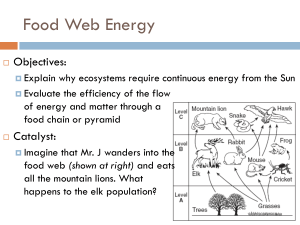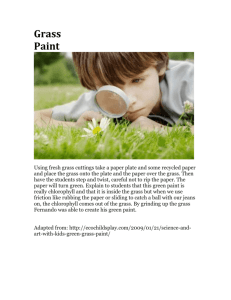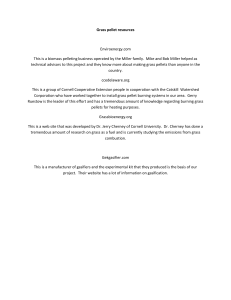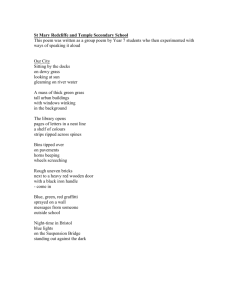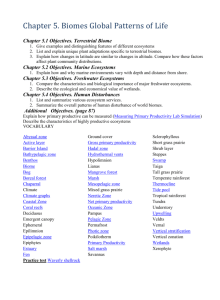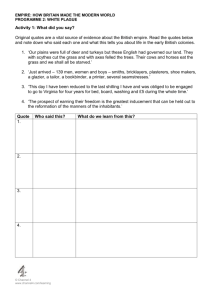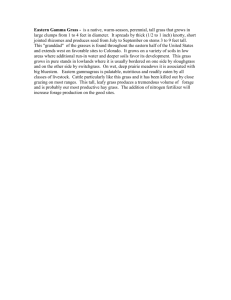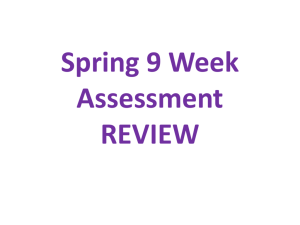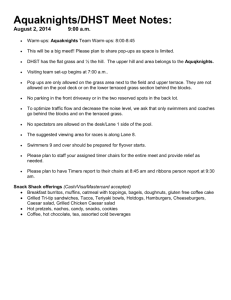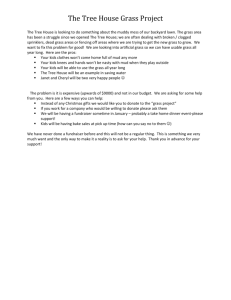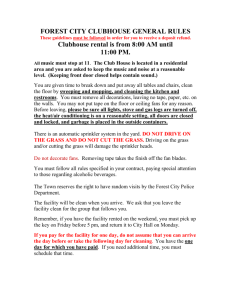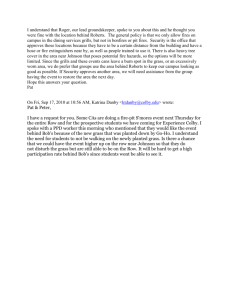Food Webs
advertisement
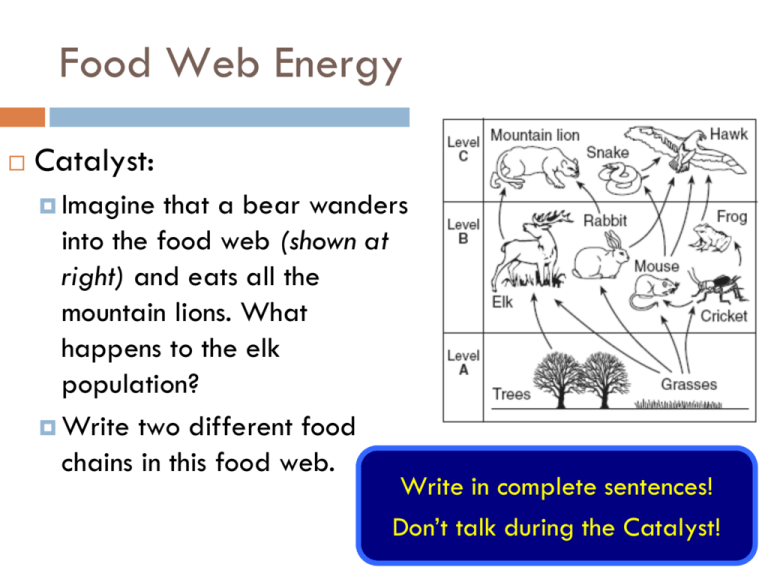
Food Web Energy Catalyst: Imagine that a bear wanders into the food web (shown at right) and eats all the mountain lions. What happens to the elk population? Write two different food chains in this food web. Write in complete sentences! Don’t talk during the Catalyst! Objectives By the end of today, all SWBAT… Explain why ecosystems require continuous energy from the Sun Evaluate the efficiency of the flow of energy through a food chain Explain why Mr. LY is a vegetarian Homework Review Catalyst Review Imagine that a bear wanders into the food web (shown at right) and eats all the mountain lions. What happens to the elk population? Label two different food chains in this food web. Food webs need the Sun! Key Point #1: Ecosystems require continuous input of energy from the Sun All of the energy in a food web ALWAYS begins with the Sun. What if the energy from the Sun were removed? Without energy from the Sun, producers die. If producers die, primary consumers die. If primary consumers die, secondary consumers die. The bottom line: ecosystems require energy from the Sun, or else everything dies!!! Guided Practice (GP) What would happen to the producers in this ecosystem if the Sun stopped shining? Guided Practice (GP) What would happen to the primary consumers in this ecosystem if the Sun stopped shining? Guided Practice (GP) What would happen to the secondary consumers in this ecosystem if the Sun stopped shining? Guided Practice (GP) Why does this food web require continuous input of energy from the Sun? Energy Ineffiency Trophic level = step in a food chain Key Point #2: Only 10% of the energy in a food web is passed from one trophic level to the next. rest is lost as heat. Called the “10% rule.” The higher up in the food chain you go, the more food an organism must eat to get the same amount of energy. 1% 0. 1% 1% The 10% 10% 100% Environmental Vegetarianism 1% 10% Humans Cows 10% 100% Wheat You have to eat 10kg of beef to get the same amount of energy as 1kg of wheat What % of energy does each organism receive? The taiga is one of the coldest ecosystems on Earth: Winter lasts 5-6 months, and hardly any sunlight reaches it during the rest of the year. Fur trees and grass use this meager sunlight to grow. Mice feed on the grass and, though they are rare, a few owls feed upon the mice. Fur 100% 1% Grass Mice 10% Owl What % of energy does each organism receive? In the tropical savanna, large amounts of sunlight allow for an enormous, unbroken layer of grass to grow. Because of the abundance of grass, there are many grazing animals, such as sheep, goats, and cattle. A few lions roam the grassland, eating these delicious mammals. Sheep 10% 100% Grass Goats Cattle 1% Lions Guided Practice (GP) In the first box of your “Drawing Time!” worksheet, make a food web. Trade your worksheet to the right. When you get a new worksheet, draw a single food chain from this food web. Label the percentage of energy received. Once you get your worksheet back, check the answers. If your partners made a mistake, you lose points! Closing Ecosystems require continuous input of energy from the Sun Sun provides energy for producers Producers provide energy for consumers No Sun no producers no consumers Only 10% of the energy in a food web is passed from one trophic level to the next 100% 10% 1% 0.1% Exit Questions: Answer BOTH AIn your own words, explain WHY ecosystems require a continuous input of energy from the Sun. Hint: Use the words “producer,” “primary consumer,” “secondary consumer.” B Read the following passage to answer the questions below: The ranches of the American Midwest are full of grass. The grass uses sunlight to grow. Cows and rabbits graze on the grass. However, the grass provides these animals little shelter from wolves, which eat the cows and rabbits. Where does all the energy that enters this food web begin? What percent of the food web’s energy does the grass receive? What percent of the food web’s energy does the wolves receive?
